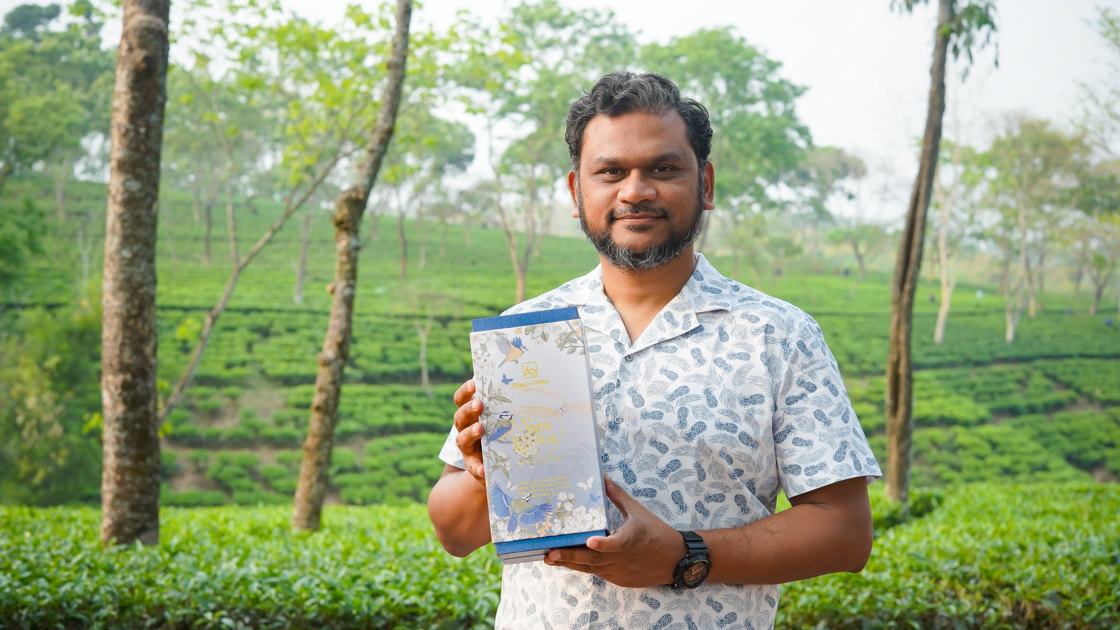
Shamim Khan is the Founder and Managing Director of Halda Valley Food and Beverage Ltd. The tale of Halda Valley began in 2002, when Nader Khan, Managing Director of PNL Holdings Limited, one of Bangladesh's most prominent corporate houses, acquired Halda Valley Tea Estate with an intention to add greater value to Bangladesh's tea sector.
Today, the company produces high-quality specialty teas for millions of tea lovers in Bangladesh and across the world. Shamim Khan, son of Mr. Nader Khan, joined the family business in 2016, following in his father's footsteps, and is now the Managing Director of Halda Valley Food and Beverage Ltd. Mr. Shamim, a physician turned entrepreneur, has since expanded the business and established Halda Valley as a consumer brand in Bangladesh.
In this wide-ranging interview with Future Startup’s Ruhul Kader, Mr. Shamim talks about his path to entrepreneurship, the difficulties he encountered in transforming from a doctor to a full-time entrepreneur, how Halda Valley came into being, the early days of building the company, delves into the making of Halda Valley Food and Beverage and how the company has grown from a typical tea manufacturer to a prominent tea brand with a unique concentration in specialty teas, shares how Halda Valley has evolved over the past years, how the company established its competitive edge in the market, the operational mechanics of the business, the state of Halda Valley today and its ambition going forward and much more.
The interview is sublime and intellectually empowering in its entirety. We hope you enjoy reading the interview as much as we enjoyed doing it.
This interview is brought to you by our FS Marketing Solutions partners. FS Marketing Solutions helps companies get noticed by customers, investors, media, and stakeholders. Learn more here.
Ruhul Kader: Thank you for agreeing to this interview. I wanted to start at the beginning of your journey, could you please tell us about your background and your path to entrepreneurship?
Shamim Khan: I was born in Chattogram. My father’s name is Nader Khan and my mother’s name is Hasina Khan. My mother has always aspired for me to become a doctor. So, I have dreamt of being one since 6th grade. Despite my best efforts, I was unable to gain admission to a public medical institution due to my mediocre HSC grades. Ultimately I got enrolled at Bangladesh Medical College Hospital and graduated with my MBBS degree in 2005. After that, I volunteered for 1.5 months at CRP (Centre for the Rehabilitation of the Paralysed) which is located in Savar. In fact, CRP is the place that sparked my fascination for Orthopedics and Rehabilitation Surgery.
Upon completing my internship, I began working as a medical officer in the Orthopedics and Surgery department at Khwaja Yunus Ali Medical College and Hospital, Sirajganj. I worked there for a year before returning to CRP as a Resident Medical Officer. I had always wanted to work in the orthopedic and neurosurgical fields to advance my medical career, and CRP is a one-of-a-kind health facility in Bangladesh that covers both of these areas. I was an assistant to the Consultant of Spinal Cord Injury. Every morning, the Health Service Team would work tirelessly in the OPD, while in the evenings, they would work with Spinal Cord Injured patients. I had the opportunity of working independently and gained first-hand experience in the fields of spinal fixation and fusion, long bone fracture fixation, Hemiarthroplasty, among others.
I enrolled for MS in Orthopedic Surgery in 2010 and for FCPS in the same course in the following year. I moved to Chattogram in 2011 and till 2013, I was engaged with my postgraduate training at Chittagong Medical College Hospital. Meanwhile, I joined my father’s organization ‘Lion Mukhlesur Rahman Foundation (LMRF)’ which was established in 2001 to provide free cleft lip/palate surgery. Lion Mukhlesurr Rahman, a successful businessman, was a close friend of my father who passed away in 1999. My father was very close to Mr. Rahman and credits him for helping my father in the early days of his entrepreneurial journey. To commemorate him, my father established this non-profit organization. In 2010, along with my post-graduation course, I undertook the ‘Zero Clubfoot’ project with an ambition to eliminate Congenital Clubfoot deformity from Bangladesh. With a dedicated team of 12 – 15 physiotherapists, doctors, and volunteers, we had covered 8 of Chattogram's 11 districts by 2012, including Noakhali, Cumilla, Feni, and others.
Everything was going well until I got into a pickle. In 2013, I realized that my medical career was stagnating while working in the development sector and it was high time for me to reflect on the adage "He who follows two hares catches neither." To that end, I abandoned my career as a practicing physician and started working full-time at LMRF. The NGO sector was ripe with opportunities and I wanted to contribute to the best of my ability.
I had my ultimate career transition in 2016 when I stepped into our family business, Halda Valley. Halda's parent company is Pedrollo NK Limited, which is managed by my brother. However, no one other than my father was overseeing the tea sector. So at his request, I couldn't refuse but join Halda Valley. Since I was a medical graduate, it took me almost 1.5 years to wrap my head around the whole business operation.
Back in 2002, when my father bought the tea estate in Fatikchhari, 61 kilometers away from Chattogram, it was nothing but wild bushes and jungles due to the property being deserted for many years. So, he took it upon himself to make Halda Valley a masterpiece out of barren land. As a tea estate owner, we would only manufacture and sell tea at auctions for subsequent exports. In 2014, we started producing Dragon Well Green Tea, a popular beverage in China, with the intention of exporting to the international market, particularly the Chinese market. We got a positive response from our Chinese clients and attracted many more overseas markets.
The positive feedback made me wonder if high-value specialty teas could find a market among Bangladeshi consumers. I discussed the idea with my father and my team members. My father was initially skeptical, but I eventually won him over. We began offering our green tea to colleagues, relatives, and other acquaintances on a trial basis. And everyone was very pleased with the flavor.
In 2017, we set up a stall at Bangladesh's first-ever tea expo to gauge market acceptance for our Dragon Well Green Tea. We gave it away for free on the first day of the expo. We charged BDT 150 for a 50g package on the second day. On the third day, we upped our price somewhat more, and we were completely sold out. This was an experiment and the response surprised us. The following one year, we worked even harder to prepare ourselves with the ambition to launch the product in the market by next year. Finally, we launched our unique teas for the Bangladesh market at the 2018 tea expo.
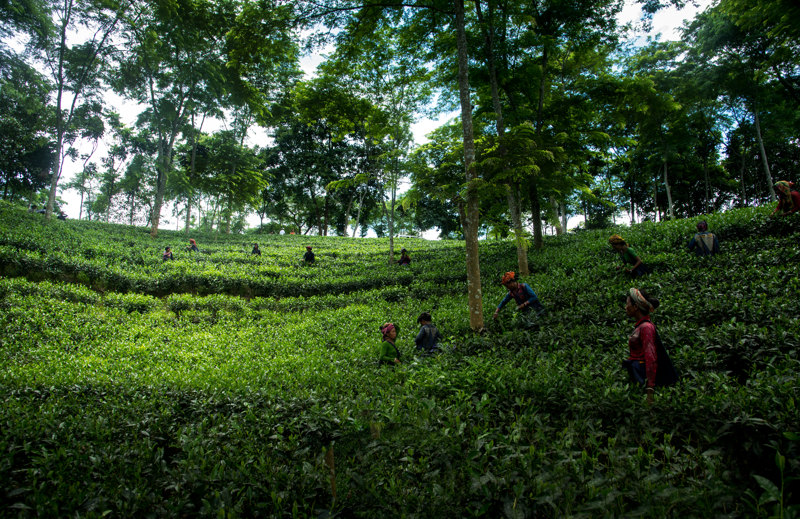
Ruhul Kader: We will get into the details of Halda Valley in a moment. Before that, I want to learn a bit more about you. How has your childhood and upbringing shaped your outlook on life and work?
Shamim Khan: I grew up in an extended family. As part of the Chatgaiyya culture, we have always maintained very close ties with our friends and family. We still celebrate every Eid in our village with all the family members. As a humanitarian, my father has employed many of our rural relatives at our family firm, Pedrollo. In a nutshell, I learned empathy from my father. To manifest this empathy, I joined the social welfare sector. Only enthusiasm or dedication will not suffice to carry out such impactful work. Financial assistance is equally necessary which was contributed by my father. In 2015, I founded my own social enterprise, LMRF Healthcare, in Comilla to provide physiotherapy, Ponseti Clubfoot treatment, and rehabilitation at an affordable cost to the marginalized section of society.
Growing up, my parents never let me understand that we were the privileged ones in society. That is, I never had a utopian view of the world. My father is a self-made man which inspired me to work harder to build my own career. I always aspired to have a distinct identity for myself and never viewed my father’s wealth as a safety net. I witnessed my father’s struggles in establishing his own business. But he has never been concerned with his own well-being; rather, he is always striving for the betterment of society. He is uncompromising when it comes to business ethics. Quality is his top priority and hence, at Halda Valley, we make sure that quality is integrated into every step of the process, starting from manufacturing to customer service.
Dragon Well Green Tea, a significant element of Chinese culture, originated in the Zhejiang province. The tea ranks as the finest amongst the top five Chinese teas. So, to uphold its name, we needed to maintain all the specifications. Unlike other brands' tea varieties, which mostly come in crushed form, our specialty teas are minimally processed and made of selectively plucked fine leaves with one bud one leaf combination. Experienced ‘tea masters’ from China visit our facility each year to evaluate and improve the quality of tea. We closely work with these tea experts from China. Amid the global pandemic, over the past two years, when they could not visit us, we have continued the collaboration using the internet. The lessons I learned from my parents and family growing up continue to influence me.
Ruhul Kader: When you joined Halda Valley in 2016, the company was undergoing a major transformation — in that from a B2B and export-oriented operation, you were turning into a consumer brand. At the same time, you had to go through a learning curve since you weren’t from a business background. Your personal transformation, as well as the transformation of the company, were happening concurrently. How did you deal with the challenges?
Shamim Khan: Designing a local FMCG was definitely taxing. But I’ve always been accustomed to challenges and struggles. When a project seems promising enough, I turn it into my passion. Since the inception of the Clubfoot project, the tendency to do something new grew in me. My experience working in the NGO sector wasn’t all rosy. Every once in a while, I've had to deal with challenges and disagreements. We encountered takeover threats from foreign NGOs while working on the Clubfoot initiative with government hospitals. As a result, I began working at the centers myself. All of these hurdles strengthened my resolve during the uphill climb of Halda Valley. I was already battle-hardened.
It took me around 2 years to become a jack of the tea trade. Since 1985, Halda Valley has only been a manufacturer and trader. From a tea producer, we made a significant leap into the area of consumer brands in 2016. With our high-end teas, we began to establish our own brand from the ground up. According to our estimates, Bangladesh's tea market is worth roughly BDT 3500 crore, and 10 crore kg of tea is consumed each year. These statistics were undoubtedly motivating for me.
However, it was quite challenging to decide on our target demographic, pricing, positioning, and marketing strategy since we had never done these previously. Internal disagreements frequently emerge between Halda Valley Tea Company and Halda Valley Food and Beverage Company. And I have to take up the role of a mediator. Eventually, I channeled all these difficulties into a drive to build something greater and meaningful.
In 2017, we conducted market research with the help of a research agency to assess the demand for green tea, both at retailers’ and customers’ ends. We also derived an important insight: The production and marketing cost of our specialty tea is close to the MRP of green teas of other tea brands in the market. So we couldn’t compete with them in terms of price. As a result, my team and I had to identify a niche market.
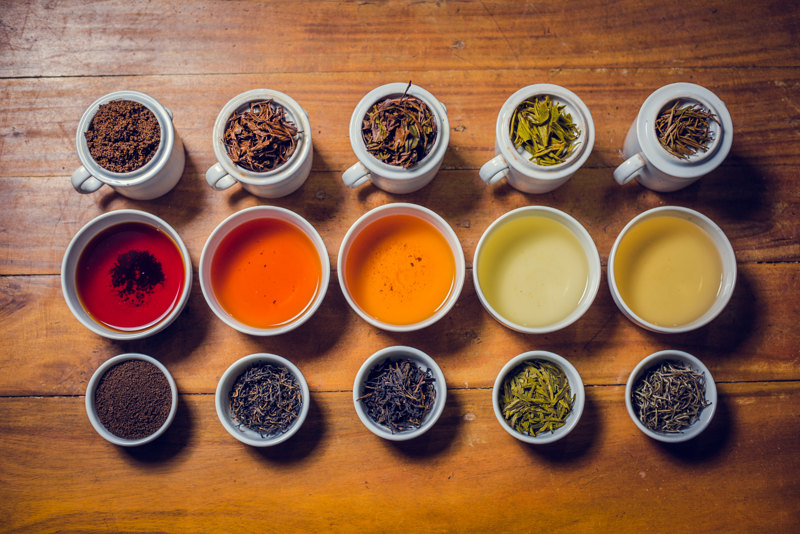
Ruhul Kader: Can you walk us through the initial days of Halda Valley Food and Beverage Ltd?
Shamim Khan: When we entered the market with our Dragon Well Green Tea, we neither had brand value nor a fixed customer base. Previously, we were only a manufacturer and distributor holding public auctions. In 2018, we pivoted to being a consumer brand for specialty teas. At that time, few foreign brands were offering green tea to Bangladeshi consumers. We settled on ‘locally manufactured high-quality green tea' as our USP. Since international brands were in our competitive landscape, we had to provide world-class packaging. Consequently, we invested almost 5x higher in packaging as compared to other tea brands in the market. We worked in close contact with a branding agency while developing our brand philosophy as well as designing themes for our packaging.
We started our business by introducing Dragon Well Green Tea and Silver Needle White Tea. Globally, Silver Needle White Tea is considered the gold standard of white teas. The leaves are harvested while very young. The delicate art of maintaining the perfect balance between indoor withering and solar drying makes Halda Valley Silver Needle White Tea such a highly regarded tea. Because of these criteria, it is highly expensive – a kilogram of Silver Needle White Tea costs roughly BDT 12,000. As a result, introducing this product in Bangladesh was quite a challenge for us. Ultimately we positioned our brand for a sophisticated, high-end segment of consumers.
In 2018, we placed our products for the first time at Unimart, Gulshan followed by Shwapno. It wasn't easy persuading these retailers. The return on shelves was not as profitable, therefore we had to spend more money on gondola shelving. We began offering free samples in these establishments to gather client feedback. The feedback was both positive and negative. Consumers who had never tasted these specialized teas began to complain about the flavor and color of the liquor. Consumers who regularly traveled to Singapore, Bangkok, and China, on the other hand, were familiar with these teas and valued our products.
In 2019, we reorganized our operation. We rebuilt our marketing and sales team. We started to work closely with super shops such as Meena Bazar, Agora, etc. We worked extra hard as a team and we put some new strategies to work. The renewed push coupled with the new strategies helped us gain momentum in the market in 2019. From the middle of 2019, we started to see excellent traction from the market. To better educate our customers, we started working on our social media pages and YouTube channel where we demonstrate how to make the tea alongside putting other tea-related content.
Ruhul Kader: After that, you launched three new products?
Shamim Khan: Yes. We launched three new products. Golden Eyebrow Black Tea, Red Robe Oolong Tea, and Halda Valley Black Tea. We launched two of our brands in December when the pandemic receded for a short while.
Ruhul Kader: Could you please give us an overview of the company today i.e. how big is your team and operation, an overview of your business today, etc?
We are not a big team. Due to the coronavirus pandemic, we have suffered badly. Not only us. The economy has been suffering. Almost every industry has been affected negatively.
We started to get some traction from the market towards the end of 2019. We started 2020 with renewed focus and enthusiasm and strategic ambition. The first quarter of 2020 was the best-ever quarter for us. We made plans for export, corporate, retail, consumer, and every area of our business to grow and reach more customers. We planned that every year we would launch at least two products and launch a few new campaigns.
As I mentioned, the pandemic started in the middle of March 2020. For us, it was an excellent quarter. We did very well until March, growing at a good pace. But then the first lockdown happened and everything came to a standstill. Business took a big hit. We had to shut down most of our operations because retail was closed.
Our initial response was thinking about survival. We had to rethink the entire operation, our target, and everything. We had around 25 people in our sales team. The total team consists of 50 people including our administrative, packaging, supply chain, and brand team. The initial instinct was how could we endure this disaster. We never had any plan to downsize the team. Instead, we would sit together and discuss how we could better respond to the crisis.
I was always keeping a tab on the development in the market. I was speaking with my doctor friends in Dhaka and other places to understand the trajectory of the pandemic and thus lockdown so that we could plan for the resumption of our operation as the pandemic lockdown lifts. But we kept the discussion on in the team to figure out how we could reduce cost, put together new strategies, keep the team motivated, and focus on the future. When the market re-opened toward the end of July 2020, we also restarted our operation with a new focus. This was the beginning of the Autumn season. We thought about what we could do to lift our team and customers out of the gloomy mood of the pandemic. We launched a promotional campaign in October 2020 with our Golden Eyebrow Black Tea Autumn Flush: a tea with a light flavor and vivid golden color of autumn that has a distinct honey-sweet floral scent. We ended the final quarter of 2020 quite well.
Overall, we did not get a chance to think and plan big after 2020 due to the pandemic. We thought that the pandemic might slow down after November and December and things would return to some sort of normalcy. But within a few months into some normalcy, we then found ourselves in a new wave. So far we could not find a respite to think long-term over the last two years.
Till today, we don't know what's going to happen next. We tried a couple of new things such as expanding nationwide but in this situation, it is hard to get good feedback.
We have recently started analyzing our internal data to better understand the market and product. We are looking into our position in different segments of the tea market and collecting critical market data. We have taken the initiative to rethink the market after analyzing all this data. Based on these new findings and understanding we are looking to get to a fresh start from the next quarter if things return to some sort of normalcy. Given the state we are in, I think this is a difficult period for every business. Every day is a challenge. Every moment is a challenge.
Ruhul Kader: Yes. It is an extremely difficult period for every business. Particularly for the consumer goods businesses. We are going through a time when having normal business discussions is tough because things have gone so out of the ordinary.
Shamim Khan: Look, we have been on a journey. Starting with a new product in the market is difficult enough. By the time we got some understanding of the market and prepared ourselves for a full-fledged operation, we had to pause our operation. It has been a difficult period.
We started in 2018. It was our first year. We spent the year understanding the market and consumer. We had some growth in 2019 and some grasp of the market. We started to see some bright spots and started to plan out things. We had a good quarter in 2020 but then everything fell apart before we settled down at our new pace.
We entered the market with an entirely new product for our market — we launched with new strategies, a new business model, and a high-end product. We were already dealing with several strategic challenges being a new player with a distinct strategy, model, and product. The pandemic has taken that challenge to a different level.
The challenge is no more your competitor or your strategy, or the market, you are now fighting an even bigger enemy than any competitor. In competition with this enemy, our budget, strategy, positioning, everything appears to be insufficient.
However, I don’t see these challenges negatively. I think these challenges are necessary for us. Allah does not put us on any trial that is not necessary for us. We needed this challenge in our personal lives, at our social level, in business, and every area of our life. If I talk about myself, the pandemic has helped me to rediscover myself. Many of our relatives and family members have suffered. My wife and I also were affected by the coronavirus and had to go through a very difficult period health-wise. It was a big personal trial for us and changed my outlook on life. I started to seriously reflect on my principles and values and priorities. I started to think about whether my business is halal, am I being able to stay away from haram, and am I doing the things that would make my life meaningful for here and hereafter.
From there, we have made changes in our strategy in business. We have decided that our business has to be halal — every aspect of the business from finance to product quality to marketing has to be halal. I did not think about these before. The pandemic has brought this chance to reflect for us. I'm always grateful for the fact that although we are seeing the coronavirus pandemic as a disaster, in many ways, it is a blessing in disguise if we could bring out the good in us using this disaster.
I also believe that challenges are important for our growth. If I could survive and come out alive out of these challenges without compromising my integrity and honesty, I know that my company would be invincible. We have seen that many businesses used the pandemic to get richer using dishonest means. In our society, where money has become the basis of everything and we are always thinking about how we could gain more at the expense of others, businesses are looking for shortcuts all the time. I believe if we could maintain honesty and overcome this challenge, no challenge will be a challenge for us in the future. To that end, these challenges are necessary and useful. If we could overcome these challenges by putting quality and customer at the center, it would work as a catalyst for us to get to the next level. It would increase our strength. The bigger the challenge, the greater the reward if you could overcome it.
Ruhul Kader: Absolutely. This is such a critical point and the one we often forget when we find ourselves in a difficult spot. As Nietzsche said, what does not kill you makes you stronger.
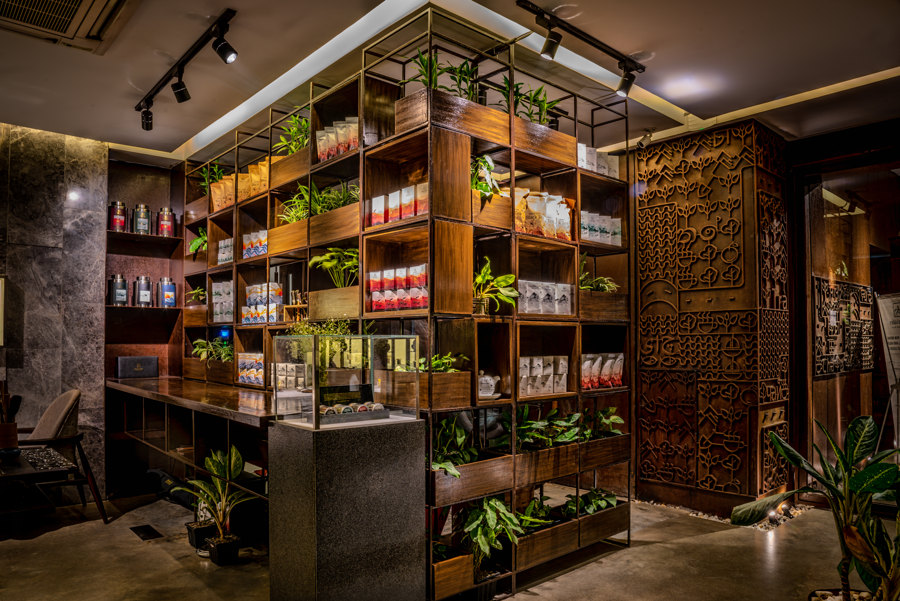
Ruhul Kader: Despite a slew of challenges, your organization has made significant progress in a relatively short amount of time. What have been some of your successful strategies?
Shamim Khan: Firstly, differentiation has really enhanced our business’s competitive edge. The existing tea brands in the market primarily offer black tea. Black tea accounts for almost 99% of tea consumption in the country.
Green tea and other specialty teas, on the other hand, are a relatively niche market with a customer base of less than 1%, according to our 2017 market assessment. Even while green tea consumption has increased in the past year, it is still minimal.
We were the first to establish a market for specialty teas. We have always aligned ourselves with overseas brands rather than domestic brands. It is safe to say that our products are price inelastic — our customers are more health-conscious and less price-conscious. If we can guarantee taste and quality, they are willing to spend a higher price. We have developed a set of loyal customers from supershops, corporates as well as e-commerce, even though the percentage is really small.
Secondly, we give utmost attention to quality and customer satisfaction. We began by introducing glass jars. However, we had a few incidents of glass shattering owing to mishandling during distribution or shelf placement. Furthermore, our green tea is highly light-sensitive, and it is susceptible to color change when stored in a glass container. As a result, a threat to our quality loomed. To address this issue, we switched from glass to tin jars. We consistently communicate with our retail channels to accomplish our objective of a sustainable brand.
Our quality obsession has helped us to gain the trust of our customers. While our teas are locally made, our quality is of international standard. We are not competing with our local tea brands. We are competing with a small number of international brands who operate in our segment. We have developed a strategy to put ourselves in that segment and build an effective differentiation.
Ruhul Kader: How do you operate as a company? Can you tell us about your organizational culture?
Shamim Khan: The marketing team is headed by me. At the end of 2019, we shrunk our marketing team to concentrate more on product development and sales. Now the sales team consists of 60% of our employees.
We have an open culture at our workplace. Our office is a 1500 square foot space with no separate rooms. We have a tea lounge adjacent to our office that serves over 60 varieties of tea and can accommodate 25 people. We practice inclusion to develop lines of communication amongst departments, welcome diverse perspectives, and cultivate an environment in which ideas are not only heard but also thoughtfully considered. I’ve always had an “Open Door Policy” — my colleagues can access and express their concerns to me at any moment.
Our employees' well-being has always been a top priority for us. With this in mind, we provide a health check-up package to our staff. Through a partner organization, we also provide a course on mental health and self-awareness. If anybody needs any sort of support, he/she can avail it under our coverage.
We encourage our managers to be cooperative with other members of the company. We infuse the company's mission and vision in them, and they pass it on to their colleagues. In the event of an internal issue, we resolve it through one-on-one discussions.
We are now working on standardizing our KPIs and developing employee branding. We don’t only want to build a great brand, we also want to be a great place to work for our people so that we could attract great people.
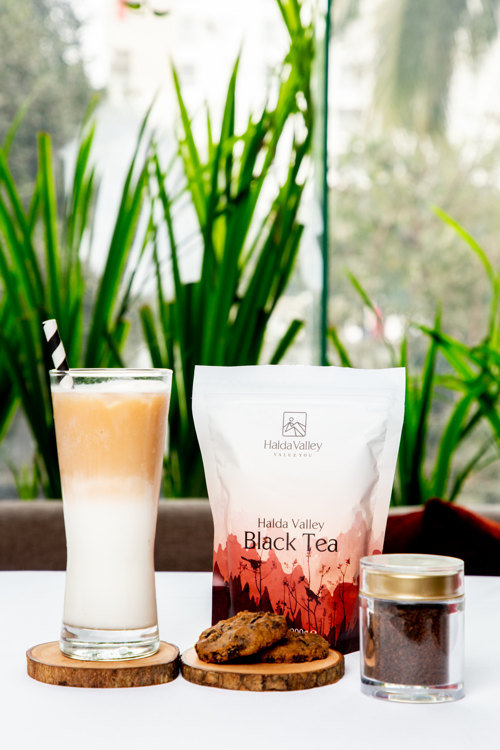
Ruhul Kader: What are your future plans for the company?
Shamim Khan: We want Halda Valley to be known as a refined brand. I aspire for Halda to become a global brand like the Sri Lankan brand Dilmah which has achieved unparalleled success in the past 30 years. With the growing demand for specialty teas in the Middle East, Europe, and America, we seek to take pride in being a Bangladeshi brand that serves all of these markets. We are not only aiming to improve our product but also to improve the tea experience for our customers. We have only manufactured 5 sorts of tea so far, and we have fallen short of our expectations in terms of providing value to our customers. We aspire higher.
In Bangladesh, tea is an emotional product that is deeply intertwined with our culture. For the past 200 years, tea has influenced our mood and refreshed our thoughts. However, when compared to China, India, Sri Lanka, Turkey, and England, our tea culture is not as enriched. Our country's tea connoisseurs aren't as experimental as those in the aforementioned countries.
So, at Halda Valley, we are contemplating bringing to light the many ways tea is influencing our lives. We will try to educate the consumers about different types of tea and the best way to indulge in them. We have already done some work concerning that. We have established the country's first tea lounge, which is one of its kind.
On top of that, we also want to arrange a visit to our tea garden if customers show interest in how tea is being produced. We are building bungalows for our guests, who will be taken on a guided tea tour that will show them how tea is made. We want to provide the best tea experience possible in Halda Valley, which has never been done before in Bangladesh. Basically, when someone walks into Halda Valley, it'd be as if they were about to experience a whole new world of tea like never before.
Ruhul Kader: What are your thoughts about the prospect of the tea industry in Bangladesh?
Shamim Khan: The market has been expanding. So, innovative tea entrepreneurs should come forward to make the industry more competitive. Furthermore, there is still a lot of room for R&D in this field. A knowledge base must be built with dedicated and driven individuals who are willing to explore new territories.
Although our tea culture is almost two hundred years old now, I would say we remain a quite underdeveloped market in terms of variety, flavor, and the taste of tea. We have not been able to build a culture where we experiment and develop new ideas of tea.
For example, I could not find one tea sommelier in the country. Tea sommeliers are people who are trained in the taste, history, and general knowledge of tea. They can recommend how to better prepare and consume tea and can create tasting menus. It is unfortunate that the concept of ‘Tea sommelier’ is non-existent in our country.
The market has grown over the years. We used to export tea once. We now import teas. There is a shortfall between demand and supply. And if you consider the value addition, our state is even poorer.
I believe if we could offer high-quality teas of new variety and flavor to our customers, the opportunity is boundless. We have room for a lot more creative work in the vertical. We now have a new class of consumers who can spend. They want quality, quality service, and value. If you could offer them that price is not a factor for them anymore. If we could do great work, it is possible to build a large business here.
More importantly, we could create a new path and new tea culture that did not happen until now which is quite common in many other markets. Even in Nepal and many Africa countries, you have these excellent quality teas and the tea culture has reached a different level. Their tea culture is not as old as ours.
I believe we need more research, more quality work in the sector. The market has many challenges. Since we are trying to do some different work, we face challenges. Expertise is a challenge. Because the work we are doing is different and the industry did not build expertise in these areas before.
To do high-quality and distinct work, we need to build a knowledge base, we need passion and dedication, and people who are willing to invest in R&D and take the challenges in the market. We currently don't have this expertise. If more investment comes to this sector, then we will eventually have the knowledge base and expertise that will serve the entire industry in the future.
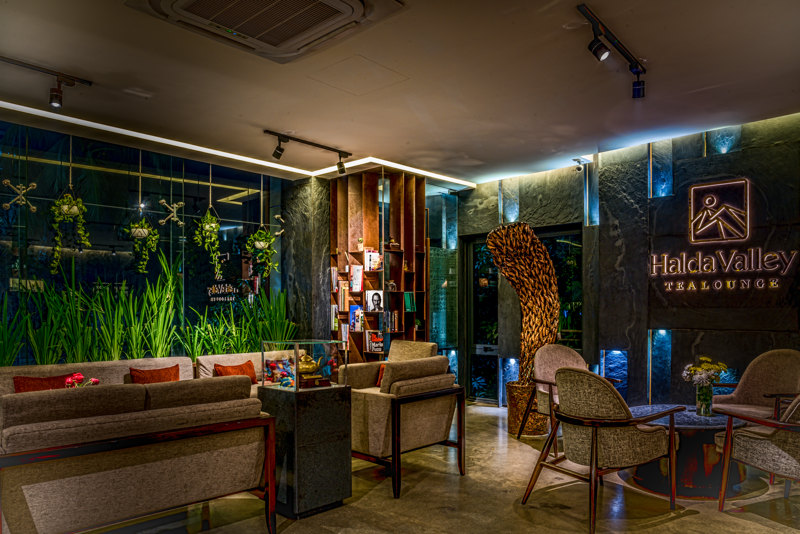
Ruhul Kader: How do you operate as a leader?
Shamim Khan: Firstly, as a leader, I am always trying to work harder. A leader must set an example of what he/she expects from his/her teammates. If slacking off, your team will lose respect for you. Instead, work hard.
Taking responsibility is the highest mark of great leaders. I never shy away from accepting criticisms for my mistakes. For instance — I made some strategic mistakes when we launched one of our latest tea products and now we’re rethinking about it and trying to rectify the mistakes. That is, we must remember that mistakes happen and we should work to fix them, not simply blame people for them. Leadership and learning is an endless journey. You can never say that you are the best because there are always scopes for improvement.
As a leader, it is very important to be self-aware. We should be able to judge ourselves more than we judge others. I have been on a journey to refine myself as a leader. I think that is your biggest job as a leader — becoming an ever more refined version of yourself. That comes from a sense of honest self-awareness.
Ruhul Kader: Do you follow any framework for improving or refining yourself?
Shamim Khan: It isn't anything specific. I try to learn all the time. I follow people like Brian Tracy and Philip Kotler and try to learn from them.
Steve Jobs has always been a source of inspiration for me. I conduct my own data analysis for my company. This was something I learned on my own. I give a lot of thought to how my company can perform better. As I mentioned before, I closely observe the Sri Lankan brand Dilmah. Every tea has a legendary background, which I attempt to incorporate into Halda's brand story.
My learning journey is non-linear. I’m a keen observer of myself and the world around me. I blend that with an open mind to accept new information and knowledge and change my view when I come across different evidence.
Ruhul Kader: A couple of books or reading that you’ve read recently and would like to recommend to our readers.
Shamim Khan: Well, I’m not an avid reader. I prefer watching YouTube over reading books.
The book ‘It's the Manager,’ released in 2019 by Gallup really helped me develop my managerial understanding. The book shows leaders and managers how to adapt their organizations to rapid change — from new workplace demands to the challenges of managing remote employees, the rise of artificial intelligence, gig workers, and attracting and keeping today’s best employees.
‘Design to Grow: How Coca-Cola Learned to Combine Scale and Agility’ written by Coca-Cola’s Chief Growth Officer is also very insightful.
In the past month, I really enjoyed reading ‘Thik Bethik Marketing’ written by Galib Bin Mohammad, Head of Marketing, Arla Foods.
Ruhul Kader: What do you think about life given that life on earth is short and transient?
Shamim Khan: To be honest, the epidemic has completely altered my perspective on life. My wife and I were both infected with Covid-19 in October, which provided us with time to contemplate. We both devoted ourselves to learning everything we could about Islam. My new mantra is to live my life as an ideal Muslim while balancing Dunya and Akhirah.
Life is endless to me. Dunya is transient and is only a small part of my life. Our life continues in the Akhirah.
Although Dunya is transient; yet, we must work for the benefit of not only ourselves, but also of our family, society, and country as a whole. I’m always striving to ensure that every aspect of my business is Halal and ethical so that I don’t have to regret it on my deathbed.
